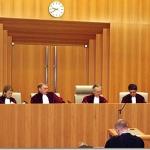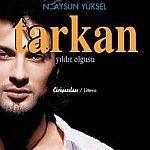Ömer Sükrü Asan appealed to the European Court of Human Rights (ECHR) after his book "Pontus Culture" was confiscated for allegedly containing "separatist propaganda". The ECHR has sentenced Turkey to paying 1,500 Euros compensation.
First edition not banned
The book was first published by Belge Publications in 1996. The first edition was not stopped. In 1999, the book was published in Greece, and the second edition came out in Turkey in 2000. The then State Security Court decreed the confiscation of the book in January 2002.
The ECHR questioned why the second edition was confiscated if the first one was not and there had been no changes in law. According to the ECHR, the only difference was that the media had pounced on the publication of the second edition.
The court said that it was not convinced that it was necessary in a democratic society for the government to limit the freedom of expression of Asan. It further recorded that the book did not contain any political theses but rather ethnological, cultural and linguistic information.
The book was allowed to be sold again in Augst 2003, after the ban on the book had been lifted.
Nur Radio: Earthquake "a warning from Allah"
In a separate case, the ECHR found no grounds for the six-month closure of Nur Radio station and TV channel by the Radio and Television Supreme Council (RTÜK). A person at the radio station had described the earthquake of August 1999 as "a warning from Allah". However, the ECHR did not consider it necessary to sentence Turkey to compensation or investigate a claim of discrimination in this case.
When the radio station reported the opinions of a spokesperson of the Mihr Community, who had said that the 1999 earthquake was "a warning against Allah's enemies" and that "Allah had decided on it", RTÜK had closed the station for six months in October 1999.
Radio representatives said that they had interpreted the earthquake from their own point of view, but that other people were free to believe or doubt their view.
The station appealed to the ECHR on 27 January 2003. The court found the 160-day broadcasting ban too extreme a penalty. (EÖ/AG)












